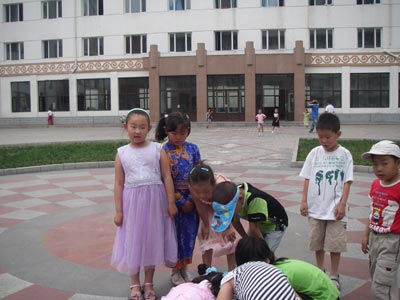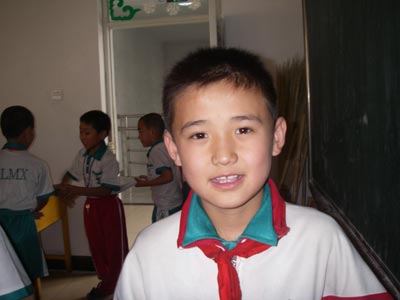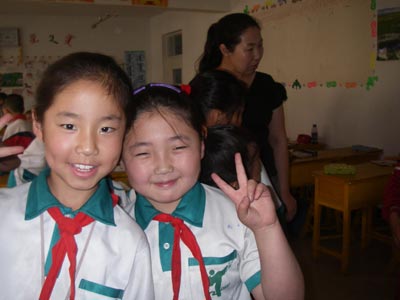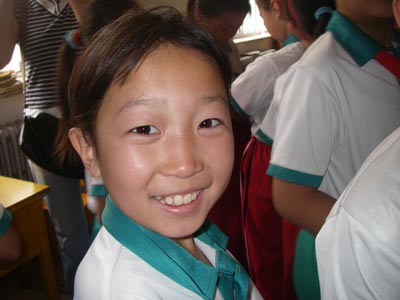| Tools: Save | Print | E-mail | Most Read |
| Mongolian Language and Education |
| Adjust font size: |
"To keep a culture alive you must keep the language: if you lose your language you will lose your culture," long ago stated Dr. Edward T. Hall, a leading anthropologist from the In
Currently three Mongolian-Chinese primary schools exist in
The Xing'an Road Minority Primary School has been open for six years. The headmaster, Da Lu Du Ren, a jovial Mongolian man, greeted me at the gate and said, "Welcome. We are the only primary school in
As he led me around, he explained that his school provides a full academic curriculum in Mongolian and Chinese for 1,200 students, ranging in age from six to thirteen. The vast majority of the students are locals, from full blood Mongolian families. "Only a few of them, less than twenty, come from mixed marriages," he remarked. "And there are a handful from families that just a little Mongolian blood. But we have one student, a Buryat from the A few minutes later I walked around with a slender woman in her thirties, a science teacher named Mu Lan as my guide. "Our school has a large sports area, we teach Mongolian sports, such as wrestling," she proudly said. "And we feed our children healthy meals, here is the cafeteria." Spacious and clean, filled with rollicking students, the room had a nice feel to it. "Over a hundred Outer Mongolian students live here at the school. We provide them with room and board. Three Russian students also attend our school, two from Ulan Ude. They both lives on campus but the boy from
"Why do these foreign students come to your school?" I queried. "Because our educational system is superior to their countries," she replied. "And because their parents may be working here in "Do you think the Mongolian language will continue to survive? In my country many minority languages have disappeared," I commented. "Yes, I most definitely think Mongolian language and culture will survive. The Chinese government has passed laws encouraging and supporting minority languages. Two years ago the government made a law protecting the Mongolian language. And the Mongolian people are a proud race. We will uphold our traditions, keep our language, and enjoy our traditional foods. Now, would you like to eat a little Mongolian lunch with me?" Mrs. Mu Lan asked. "The food here is quite good." "With pleasure," I replied, smiling. (China.org.cn by Valerie Sartor, July 23, 2007) |
| Tools: Save | Print | E-mail | Most Read |
 |
| Related Stories |
|
Product Directory China Search |
Country Search Hot Buys |



